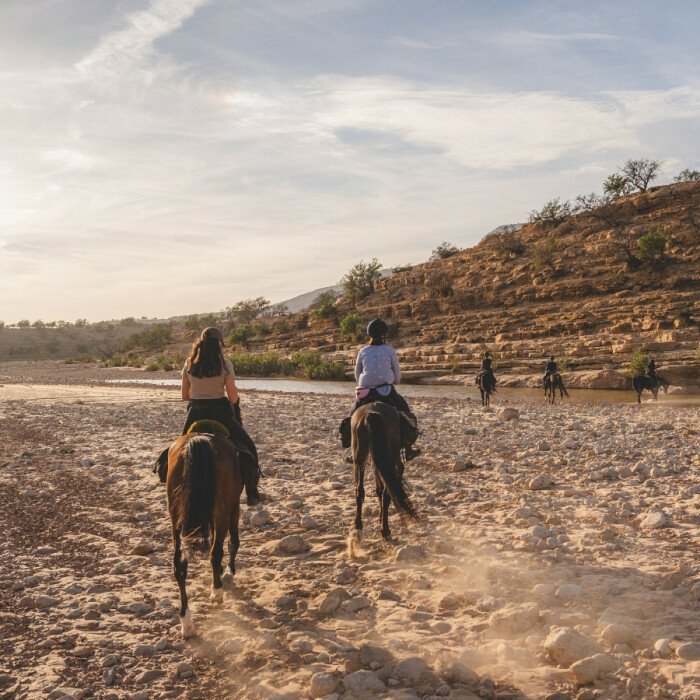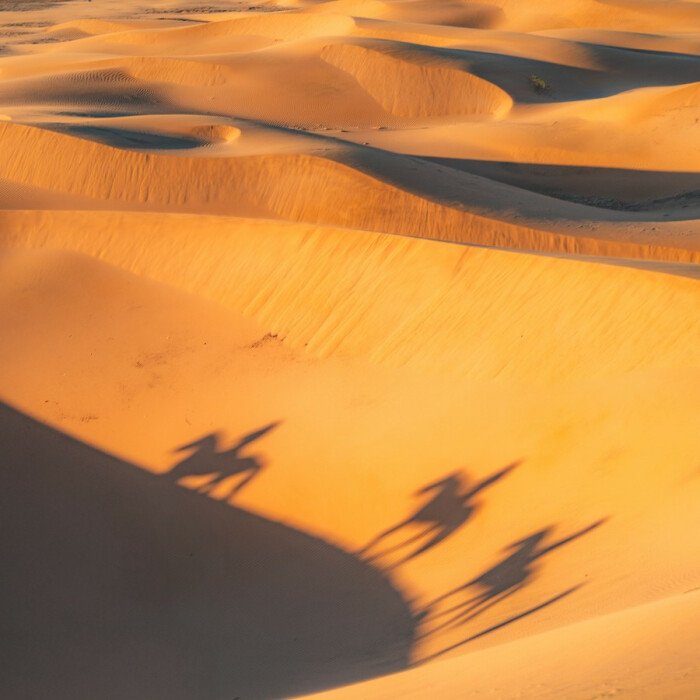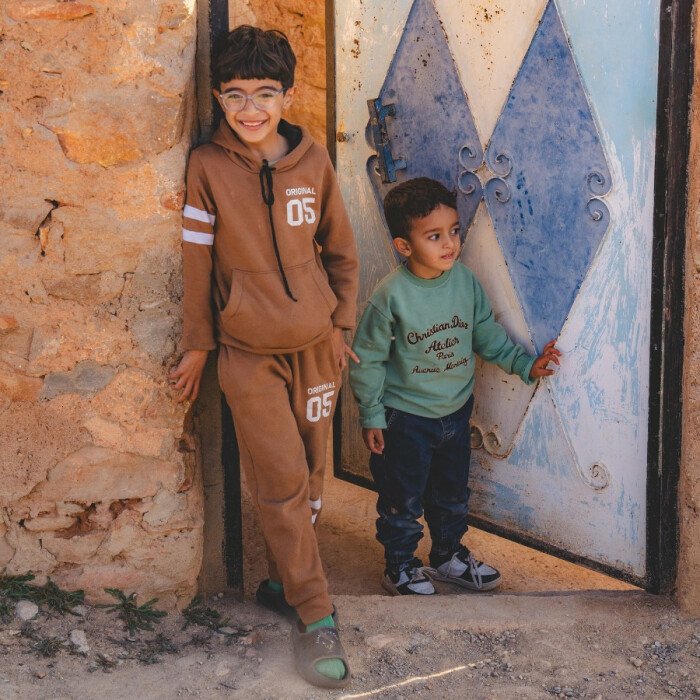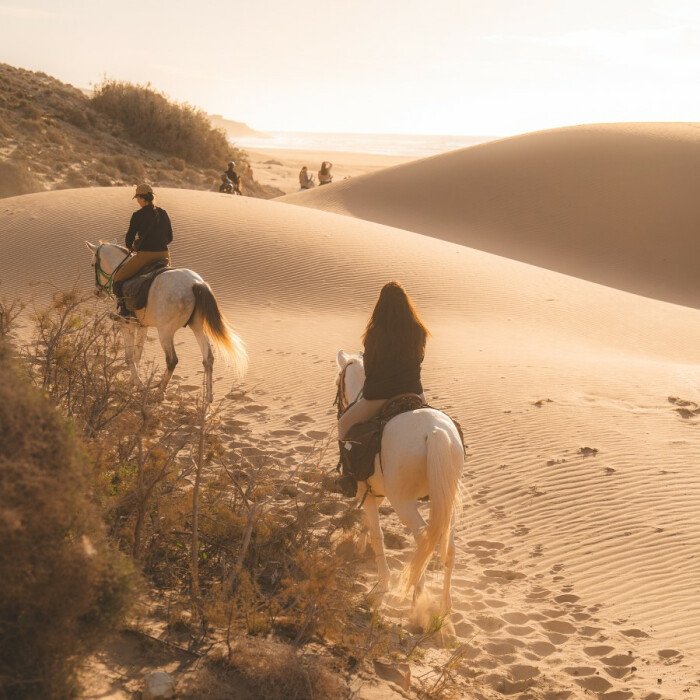Discover the deeper meaning of Amazigh, free man, and why we chose to rename our horse trekking to truly honor this proud and authentic culture.
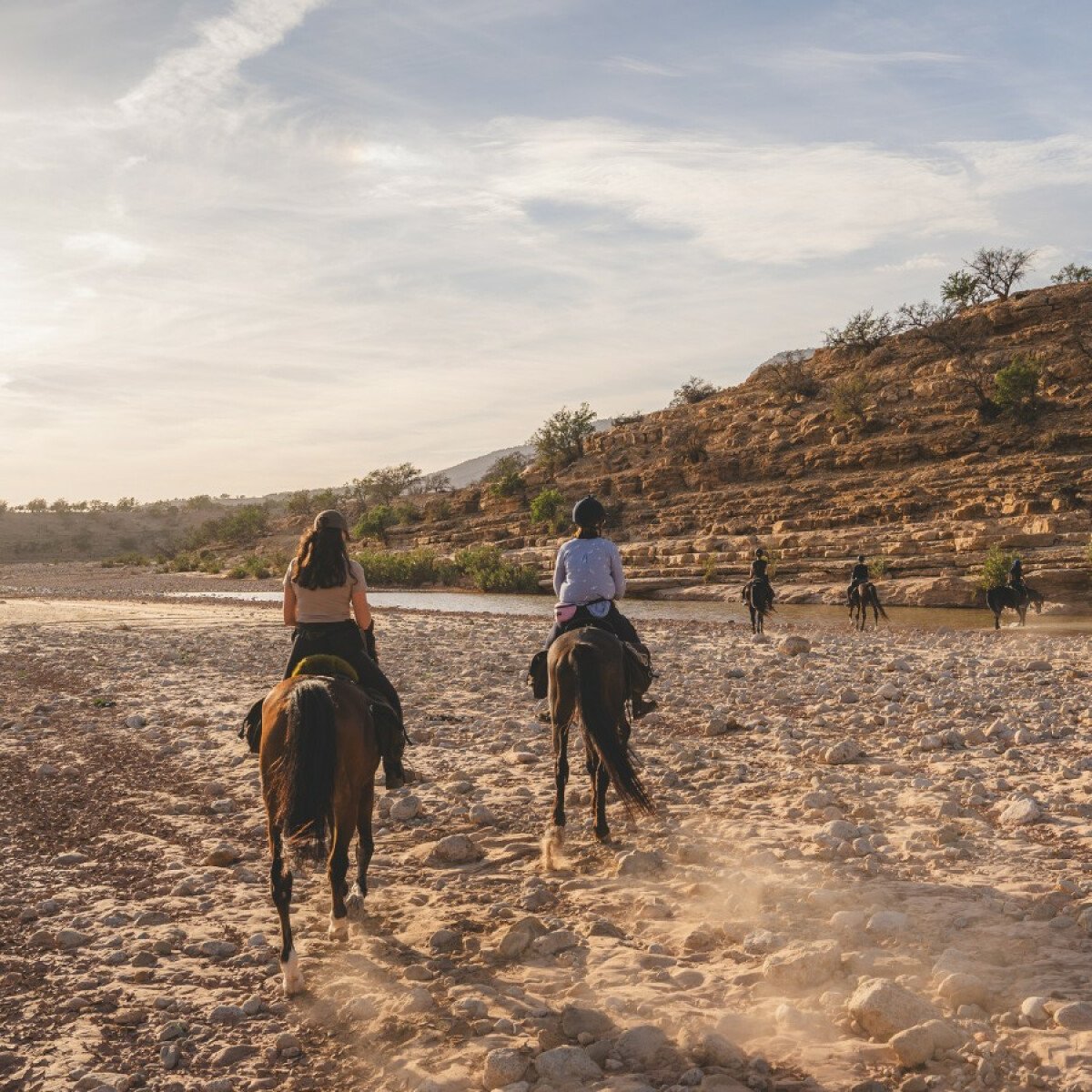
For many years at Ranch de Diabat, we offered and promoted a horseback route called “Berber Villages”. We used the term "Berber" without thinking much about it: it was a common word, used in books and travel stories, and also because Omar, whose mother’s side of the family has roots in this culture, always described himself as "Berber," without considering the historical implications of the word.
But we've come to understand that the cultural and historical meaning of this term is not what we want to carry forward in our work. We are grateful to those who brought this to our attention and allowed us to learn more. So, one of our most beautiful treks now has a new name: from today, you’ll find it in our catalog as the Amazigh Horse Trek.
Why we no longer use the term "Berber"
The word "Berber" comes from the Greek barbaros, originally used to describe anyone who didn’t speak Greek. It was later adopted by the Romans and the Arab world, gradually taking on more and more negative connotations. In some languages, even today, it still carries the idea of being “uncivilized” or “rough.” It’s a label imposed by outsiders, often from a colonial perspective. Though widely known, "Berber" was never how these people identified themselves.
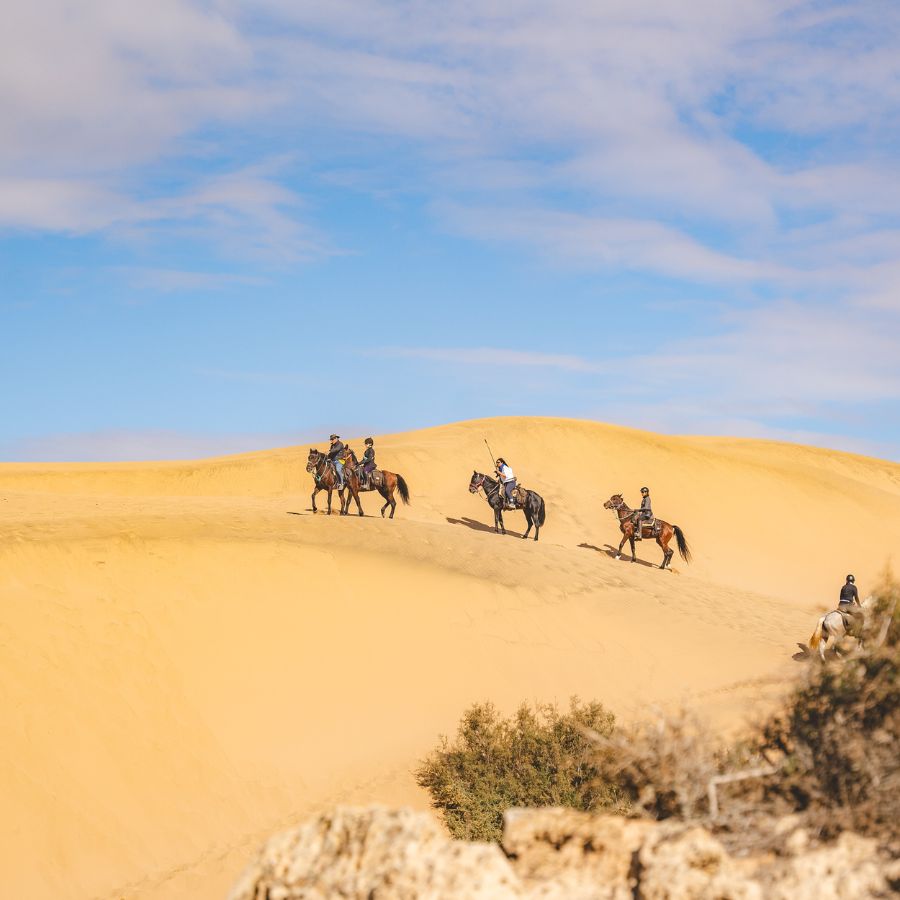
Instead, we use Amazigh
The peoples who inhabit the mountainous, desert, and rural areas of North Africa identify as Amazigh (singular of Imazighen). In the Tamazight language, Amazigh means "free person." It’s a word that tells a story of pride, resilience, and connection to the land.
Imazighen live across much of Morocco, as well as in Algeria, Tunisia, and Libya. They speak distinct but related languages, preserve ancient knowledge, build earth houses, grow olives, and craft with wood, iron, and wool. They live in harmony with nature, following rhythms that today we might call sustainable, but for them are simply life as it’s always been.
Amazigh in Morocco today
Today, Amazigh culture is officially recognized in Morocco: since 2011, the Amazigh language has been co-official alongside Arabic. There is a vibrant and widespread movement of cultural and linguistic revival, aimed at preserving traditions, promoting the Tamazight language, and reviving the Tifinagh script. Many Moroccans, even those who have become Arabized in language or lifestyle, have Amazigh roots and recognize them with pride. It is an identity not rooted only in the past, but one that continues to evolve in the present.
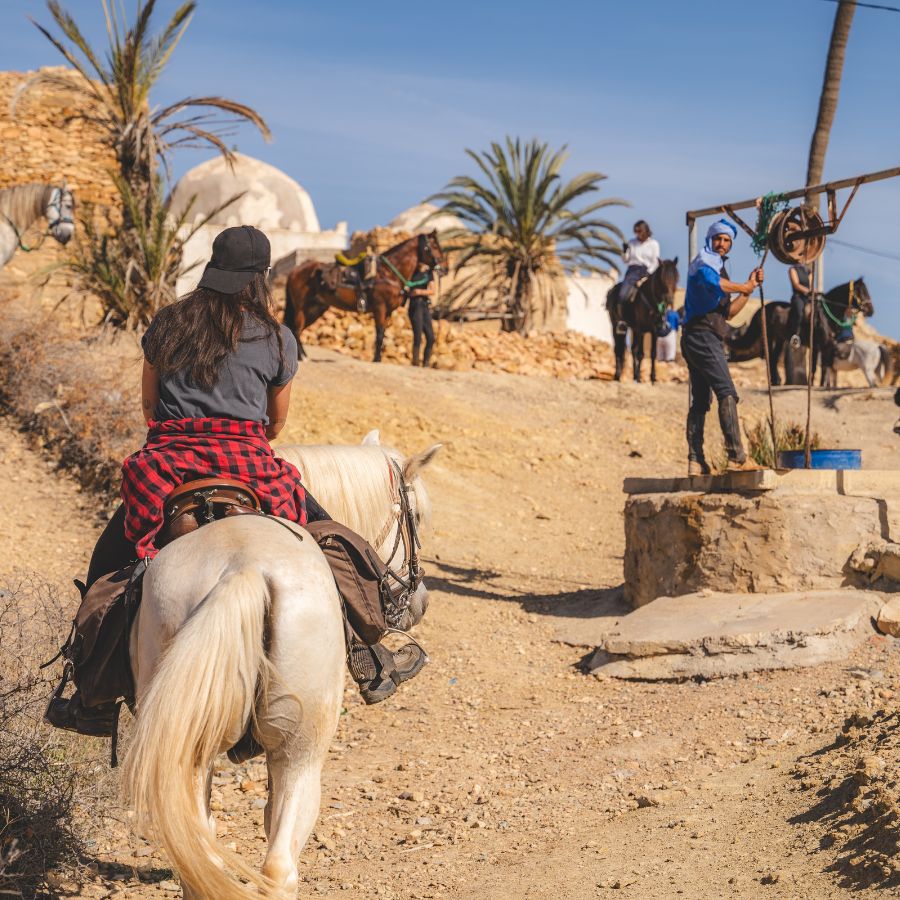
A people deeply connected to horses
For the Amazigh people, the horse is not just a means of transport: it’s a companion, a family member, and an essential part of the community. For centuries, Amazigh equestrian traditions have passed down methods of breeding, riding, and horse care—along with a deep, intuitive relationship between rider and animal. Our treks owe a great deal to this approach, which we’ve learned and embraced over time.
Our commitment to Amazigh culture
We want to give back at least a part of the great debt we owe to Amazigh culture—and in our own small way, help share it with others.
- We collaborate with local Amazigh guides and communities so that tourism can be a shared opportunity for growth.
- We tell their stories—and create space for them to speak for themselves—with respect and curiosity, avoiding filters or folklore.
- We offer authentic experiences, far from mass tourism, rooted in the real rhythms of rural Moroccan life.
- We promote responsible tourism that respects the environment, local people, and cultural traditions.
A new name, the same spirit
The name changes. Awareness grows. But the spirit and beauty of the experience stay the same. The Amazigh Horse Trek remains one of our most meaningful journeys, crossing mountains, villages, argan forests, and wild beaches. But now, it has a name that better reflects what it truly is: an encounter. With nature, with horses, and with a culture that deserves to be called by its true name—with respect and gratitude.
